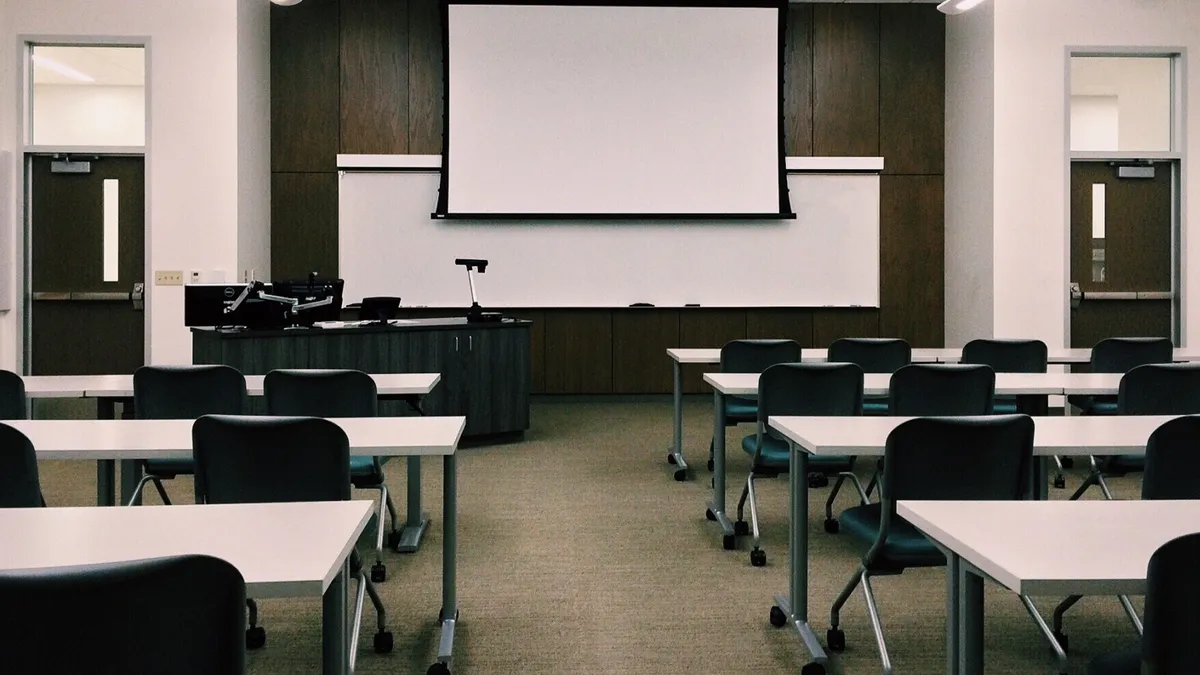Dive Brief:
- More than 6,300 coronavirus cases are tied to U.S. colleges and universities, according to a recent New York Times analysis.
- The Times surveyed every public, four-year college, as well as elite private research universities and schools that compete in Division I sports. The publication found at least 14 deaths related to the virus at colleges and 11 institutions that have seen 100 or more cases.
- The findings suggest the coronavirus is spreading on campuses ahead of the fall term — a foreboding sign for colleges that plan to bring students back amid the pandemic.
Dive Insight:
The pandemic is surging throughout the country just weeks before the fall term starts. Some faculty members are refusing to teach in-person classes, and campus workers are demanding their institutions improve safety measures and provide them with personal protective equipment.
Meanwhile, cases are mounting at some institutions. That includes the University of Washington, in Seattle, which announced earlier this month that at least 121 coronavirus cases were linked to Greek housing. And dozens of colleges have had at least one student-athlete or athletic staff member test positive for the virus, imperiling the fall sports season.
The true number of coronavirus cases connected to colleges is unknown. The Times' analysis did not include community colleges and many private universities, and hundreds of colleges didn't respond to its survey.
But confirmed cases are ticking up across the U.S., with the country surpassing the 4 million mark last Thursday. The death toll has passed 150,000.
A slew of institutions has recently walked back plans to resume in-person instruction, citing the virus's spread. The University of Southern California was one of the first to do so, making the call earlier this month, and many smaller schools have since followed suit.
Other colleges have announced they'll start the term virtually in the hopes they can resume in-person instruction once the crisis subsides. Georgetown University, in Washington, D.C., said Wednesday that it will begin the fall semester online "due to the acceleration of the spread of the virus and increasing restrictions on interstate travel."
The announcement came two days after the District of Columbia started requiring visitors entering the city from 27 states to quarantine for two weeks. More than one-third of states have similar restrictions in place, according to one count, which have affected other colleges' reopening plans.
However, more than 700 institutions are preparing for mostly or fully in-person instruction for the fall, and another 480 schools are gearing up for a hybrid term, according to data from the College Crisis Initiative (C2i) at Davidson College.
Colleges face a tough choice. Staying online this fall risks losing students who don't want to pay full tuition for a virtual education, but reopening campus could lead to outbreaks of the virus, which has unknown long-term health effects.
Some colleges have spent millions on personal protective equipment and campus upgrades to welcome back students, The Wall Street Journal reported last month. Purdue University, which C2i notes is planning for a primarily in-person fall, has budgeted $50 million for coronavirus-related safety measures. And Colby College, in Maine, plans to spend around $2.5 million on coronavirus testing for the coming term.















